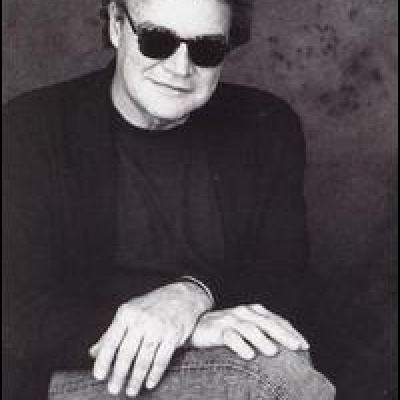
Terry Allen
by Richie UnterbergerThere may be no greater maverick than Terry Allen in all of country music from the mid-70s onward. Along with Jimmie Dale Gilmore, Joe Ely, and Butch Hancock — all of whom hes known and collaborated with — Allen is a standard-bearer of the Lubbock, TX, country scene. Though not widely heralded, this is perhaps the most progressive movement in all of contemporary country, digging into modern-day concerns with a gutsy, liberal perspective, while maintaining a firm musical grounding in regional country and folk traditions. Allen is perhaps the most ambitious of them all, writing complex song cycles that have been performed with the help of fellow eclectics ranging from Lowell George to David Byrne. Allens audience, like those of the other Lubbock pioneers, is not the country mainstream. Indeed, his principal appeal may not lie with the country audience at all (though his music definitely is country), but with open-minded alternative folk and rock listeners. Unlike most current country artists, his words aim to question and confront hard day-to-day realities, rather than offer conservative clichés or maudlin comforts to shield listeners from those very day-to-day realities. He does so with a humor and irreverence that will also find little sympathy in Nashville or Middle America. Country music is just one of Allens artistic pursuits, perhaps accounting to some degree for his wide perspective. The renaissance man is also an internationally recognized artist with three NEA grants and a Guggenheim Fellowship to his credit. Hes also a true multimedia performer, having done work in the mediums of painting, sculpture, film, video, installation, theater, and poetry. Just a few of his more interesting projects, for instance, were writing the music for Amerasia, a film about American servicemen living in Thailand after the Vietnam War; writing a new national anthem (with Ely, Hancock, and Gilmore) in conjunction with a book about Vietnam; and collaborating with his wife, Jo Harvey Allen, as well as Ely and Hancock, on the production of the acclaimed stage play Chippy. But Allen is not a country music dilettante, having written songs for Bobby Bare and Robert Earl Keen. Outside of the strict country sphere, he wrote New Delhi Freight Train for Little Feat, and contributed a few songs to the soundtrack of David Byrnes True Stories film. The cinema has always been an inspiration or influence upon Allens work. His first album, Juarez (from the mid-70s), was a conceptual work that originated as a soundtrack to an imaginary film, evolving in performance to a set of songs inspired by Mexican imagery. Released in 1979, Lubbock (On Everything) is considered his most significant album. Inspired by his experiences growing up in the Texas town, it won praise for observing the details of regional life and characters with a sensitivity and wit more akin to rock and folk singer/songwriters than country ones. Allens music (if not his lyrical content), however, remains very much in the Texan country tradition. With many artistic projects always in the works, Allen has never had the need to record frequently. His singing and songwriting prowess remained undimmed, though, on 1996s Human Remains. He also expanded his musical horizons significantly with support from such noted stars and cult figures as David Byrne, Lucinda Williams, Ponty Bone, Lloyd Maines, and Joe Ely. Salivation followed in 1999.

